For Individuals, Families & Caregivers
Your Guide to Better Oral Health: Support for People with Disabilities and Their Care Teams
Good oral health is about more than just a bright smile— it is important for eating, talking, and staying healthy. But people with disabilities often have a harder time keeping their mouths healthy. Keeping teeth clean, eating the right foods, and getting dental care can be difficult.
Things like trouble using a toothbrush, finding a dentist who understands their needs, and high costs can make it even harder. But with the right help, these challenges can be overcome, leading to better health and confidence.
If you’re a person with a disability, a family member, or a caregiver, you’re not alone. Good oral health is possible, and we’re here to help! Check out these simple resources to get started.
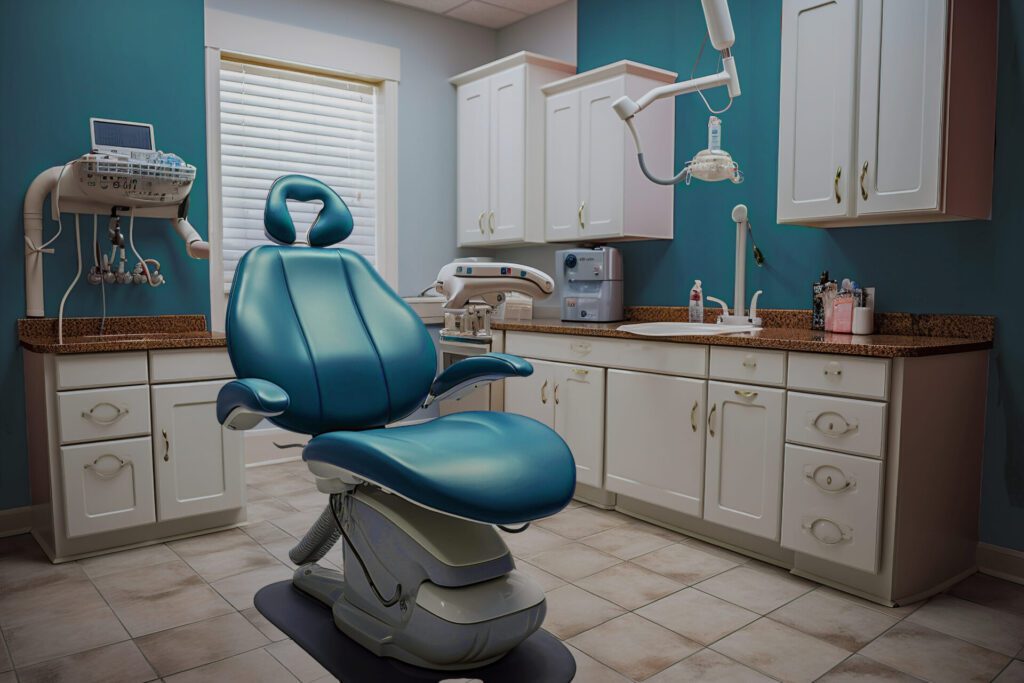
Paying for Dental Care
Explore options for covering dental costs, including:
Medicaid (KanCare) Coverage in Kansas:
Other Insurance Options
Other Payment Options
Lower or no cost dental care options:
- Dental and dental hygiene schools providing dental care for Kansans - Schools provide select low-cost dental care performed by students under supervision.
- Community Dental Clinics - Community dental clinics are low-cost dental offices. These clinics can offer dental care for people with KanCare (Medicaid), private insurance, or no insurance at all. If you don't have insurance, these clinics will charge you less money based on your income.
- Kansas Mission of Mercy (KMOM) - KMOM is a free, two-day dental clinic held annually in different Kansas cities. Adults and children can receive cleanings, fillings, or extractions on a first-come, first-served basis, with no citizenship or income requirements. Visit the KMOM website for updates on the next date and location.
Finding Appropriate Dental Care
Finding the right dentist can make all the difference in receiving great care that works for you. Here’s how to locate a provider who meets your needs:
Check out this webpage for ideas on finding dental providers who accept Medicaid (KanCare) insurance
Specialized Care for People with Disabilities: Look for providers with experience treating individuals with disabilities. Here are some questions you might ask when looking for a good fit for you.
Sedation Dental Services:
‘Sedation’ is using medicine to help a person feel relaxed, calm, and sometimes even sleepy. For some people, the safest way to get all or some parts of their dental treatment is with the help of sedation. Everyone is unique, and so is your need for sedation across your lifetime. You might never need sedation, always need sedation, or be somewhere in between. This is a decision you/your caregiver will make with your dentist. Needing sedation in the past does not mean you will need sedation every time you visit the dentist. Sedation can be a complicated topic. We are working through your most frequently asked questions now- check back soon for more information.
Clinics that provide sedation- a more comprehensive list will be available soon.
KC Children’s Surgery Center
Ambulatory Surgery Center specializing in same-day, outpatient dental procedures under general sedation
Children 18 months to 18 years
Adults with special needs up to age 60
Medicaid Accepted, payment plans offered
Se Habla Espanol
Patient must meet medical requirements (BMI under 40%, cardiac and/or neuro clearance)
Phone: 816- 235-3455
Visit: https://bluecloudpsc.com/location/kc-childrens-surgery-center/, select the “Refer a Patient” tab
If self-referral, please use “Self-Referral KS” on Dental Office line item on the submission form
KC Children’s Surgery Center
Open every Friday
Serve all ages with intellectual developmental disabilities, including community members who pass a screening to assure the disability
Residents of KNI are first priority
There is no fee
Services provided: exams, cleanings, fillings, extractions
NO dentures or other appliances
Sedation services are now available through a private mobile agency that bills separately, but their services are usually covered by insurance (including Medicaid)
Wait list: usually about two months, but they will move somebody up for emergencies
Contact: Debbie Mesecher at 785-296-5377 or Deborah.Mesecher@ks.gov
Consumer Toolkit for Recruiting Dentists

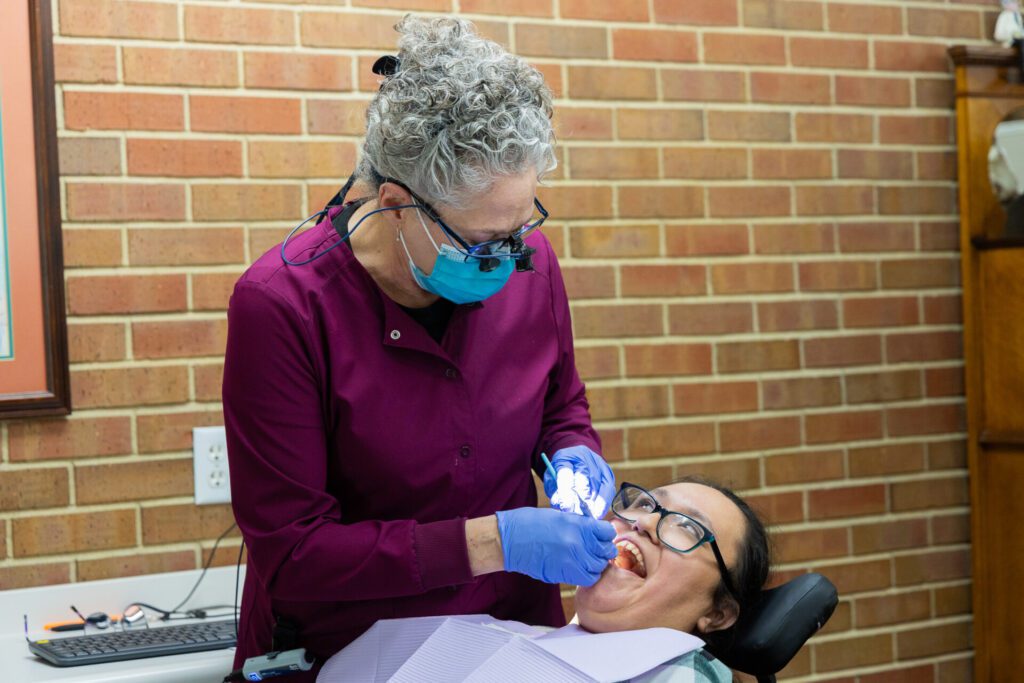
Ensuring a Successful Dental Appointment
Learn how to prepare for a successful, stress-free visit:
My Dental Care Passport: A tool to help communicate needs and preferences.
Caring for Your Teeth at Home
Find practical tips for maintaining oral health, including adapted brushing and flossing techniques for different abilities. Learn how nutrition impacts oral hygiene, explore step-by-step video guides, and find strategies to make daily care easier for individuals and caregivers.
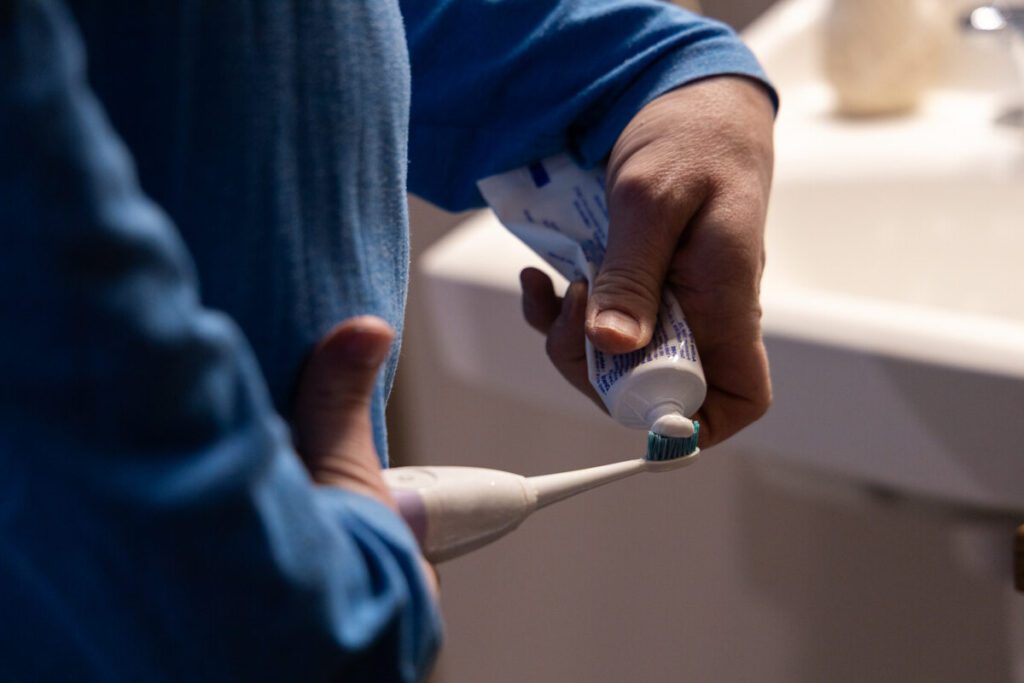
Confidence in Every Smile Video Series
Welcome to Confidence in Every Smile – An award winning video series designed to make brushing and flossing easier for people living with physical or intellectual disabilities. Each video shares practical tips, creative tools, and encouragement so everyone can care for their teeth with confidence. From handling toothbrushes and toothpaste, to managing gagging or flossing with limited mobility, to brushing comfortably when you can’t stand at the sink, these videos help you discover what works best for you.
Confidence in Every Smile







Taking care of your teeth isn’t always simple, especially if you live with disabilities. That’s why we created “Confidence in Every Smile: Practical Oral Health Tips for People with Disabilities”, a video series designed to make brushing and flossing easier with real tips, tools, and encouragement. Everyone deserves a healthy smile, and with the right support, you can find what works best for you.
Brushing your teeth is important for a healthy smile, but gripping a toothbrush isn’t always easy. This video shares practical ways to make brushing simpler and more comfortable, with tips for thicker handles, special grips, and even power toothbrushes.
Brushing your teeth can be tough if your arms, hands, or mouth don’t cooperate the way you’d like. This video shares creative tips to make brushing easier, from lengthening the handle to using weighted wristbands or even special toothbrushes designed to fit your needs.
Managing toothpaste can be tricky. From caps that are hard to open to squeezing the tube with only one hand, this video shows helpful tools and tricks to make toothpaste easier to manage and brushing more independent.
If brushing your teeth makes you gag, you’re not alone. This video shares tips that can help, such as choosing different toothpaste flavors and brushing with less foam and more.
Flossing is an important part of keeping your teeth and gums healthy, but string floss isn’t always the easiest to use. This video explores tools like floss picks, holders, and water flossers that make cleaning between your teeth simpler and more comfortable.
You don’t need to stand at a bathroom sink to brush your teeth. This video shows how you can set up a comfortable brushing station anywhere, such a table, couch, or even your bed!
Brushing the Teeth of Others
Help caregivers build confidence and compassion.
This training video shows practical ways to make brushing someone else’s teeth easier, safer, and more comfortable—while supporting dignity and better oral health. Perfect for trainers teaching caregivers who support people with disabilities.
Trainer Resources
Reinforce learning with our free Training Guide and three Supplemental Handouts:
About the Project: Brushing the Teeth of Others is part of Pathways to Oral Health, a project of Oral Health Kansas, dedicated to improving oral health for people with physical and intellectual disabilities.
Credits: Special thanks to the staff and individuals at TARC and KNI for sharing their voices in this video. Thanks also to Dr. Frank Johnson for the use of his dental office and Jayna McFarland for her talent and participation.
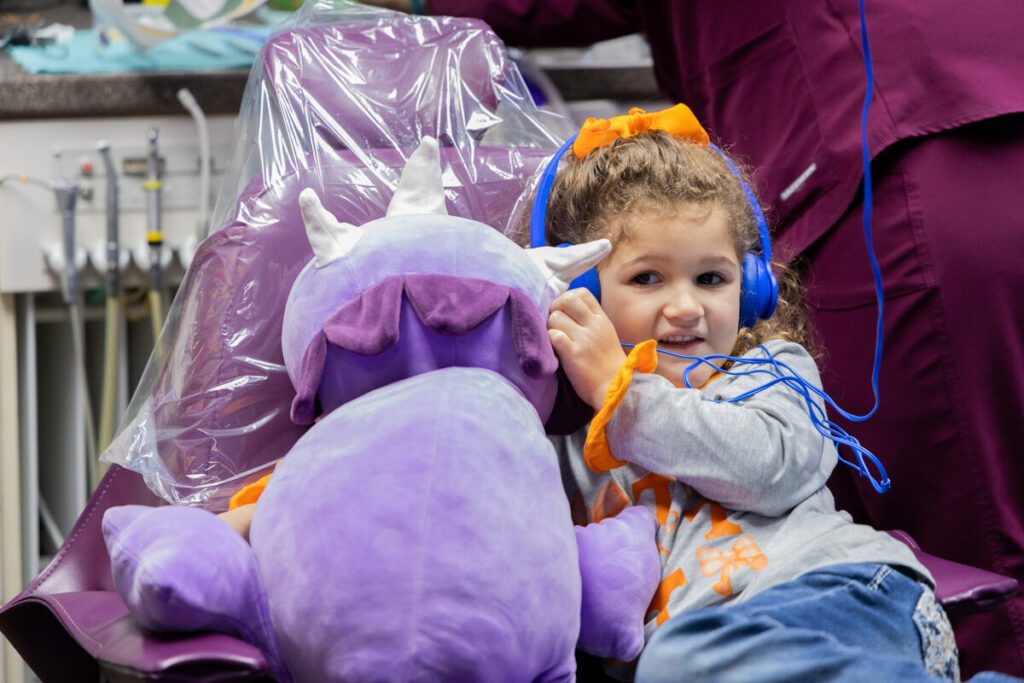
Additional Support and Advocacy
For additional support, please reach out to these partners:
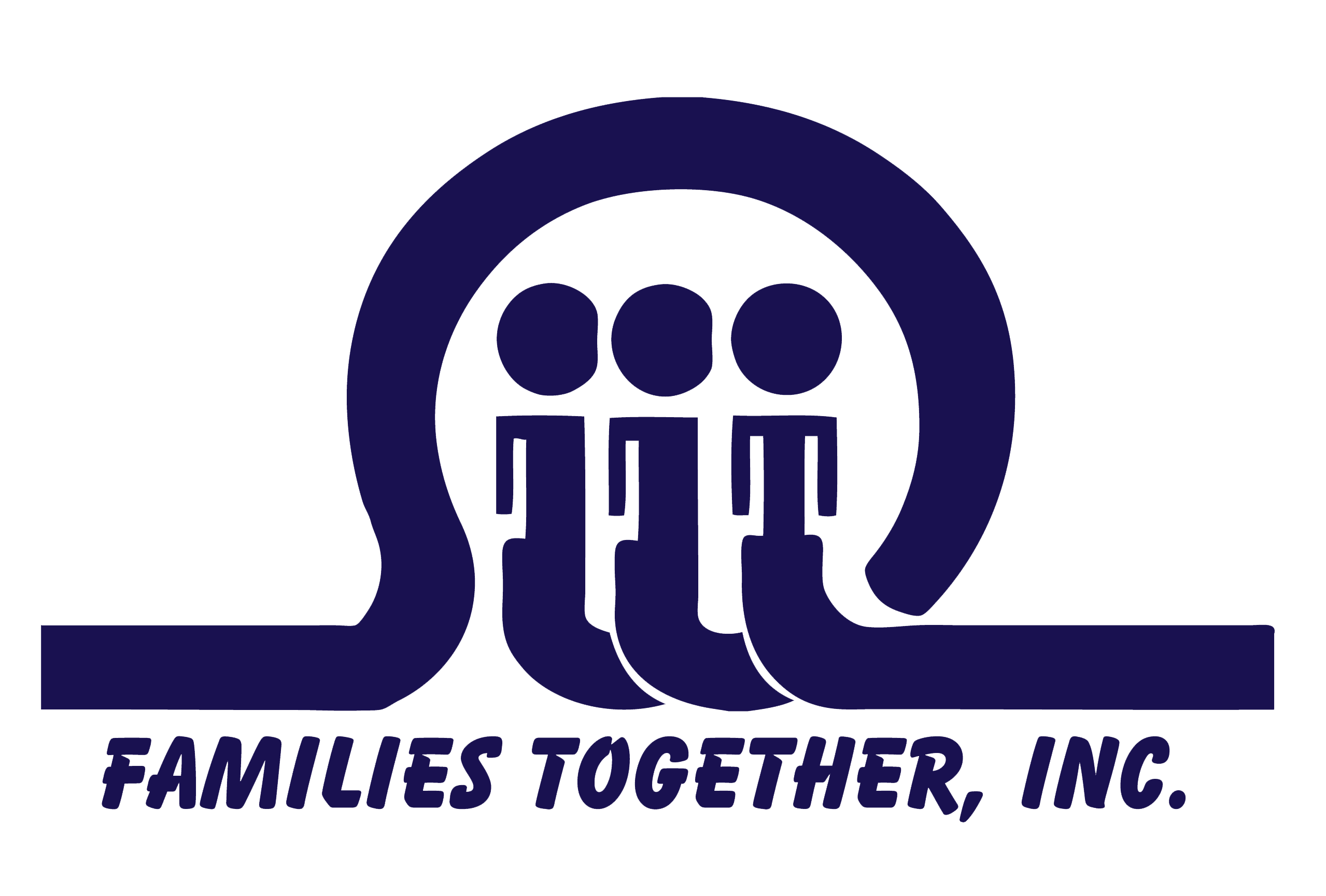
Families Together
Provides families and transition age youth one-to-one assistance, training, resources and tools at no cost.

Self Advocate Coalition of Kansas (SACK)
Statewide advocacy group made up of adults with intellectual and/or developmental disabilities

InterHab
Works to improve the lives of Kansans with intellectual and developmental disabilities (“IDD”)
Want more dentists to accept Medicaid?
Access to dental care should not depend on where you live or how you’re insured—but in Kansas, it often does. Fewer than 1 in 4 dentists in the state accept Medicaid, and 44 counties currently have no Medicaid dental provider at all. Long drives and limited options make even basic dental care out of reach for many families.
The shortage of providers touches every part of the state.
To help change that, Oral Health Kansas and Pathways to Oral Health initiative have developed a Consumer Toolkit for Recruiting Dentists—a simple, practical guide designed for community members, advocates, and caregivers who want to make a difference. Together, we can close the gap in dental access—one conversation at a time.
Explore the toolkit below and share your voice today at Pathways to Oral Health.
How can I help improve the dental care access under the Medicaid system?
Pathways to Oral Health is committed to improving dental care access for people with intellectual and developmental disabilities (IDD). We value the insights of people who have faced challenges getting dental care and navigating Medicaid. Your experiences can help us advocate for better services and create lasting change.
Interested in becoming a member? If you or a loved one has faced barriers to dental care, we invite you to join our Lived Experience Advisory Group to help improve dental care access for all Kansans with disabilities.
